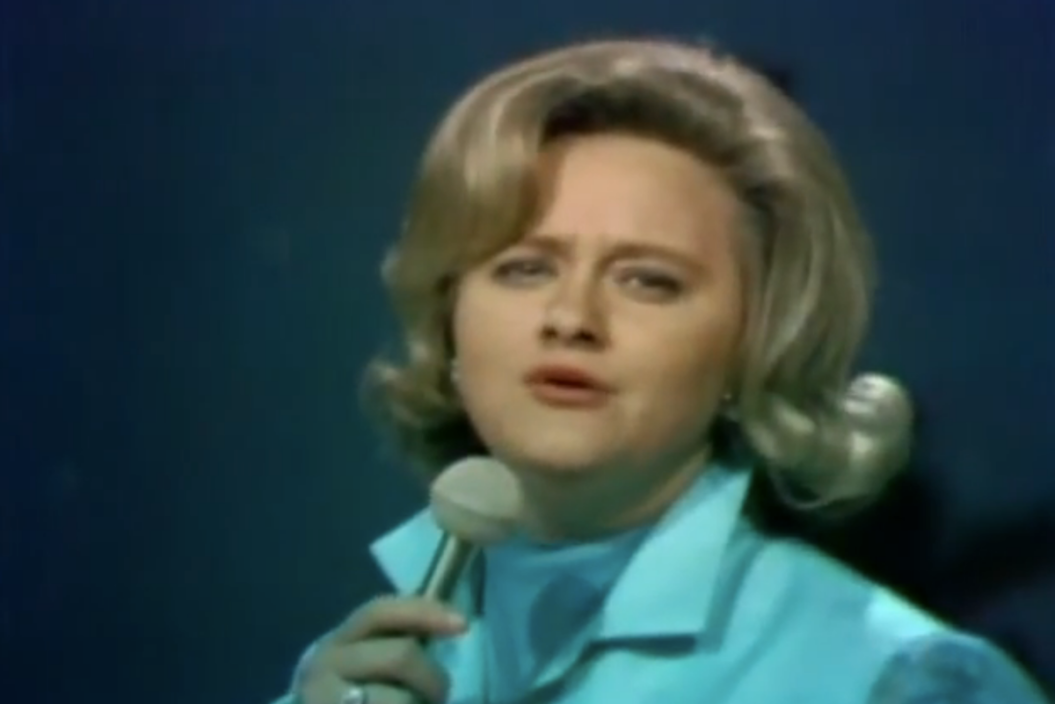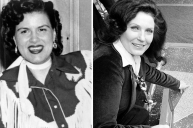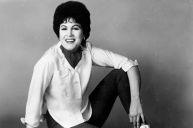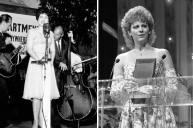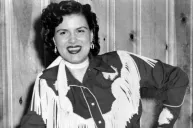For lack of a better cliche, we don't talk enough about one of the greatest country music singers of the 1960s, Wilma Burgess. Her vocal talents paired well with the instrumental tracks that built the Nashville Sound, making for a handful of great singles seemingly lost to time. If rumors about her private life ever prove to be true, she might finally get her due as an overlooked trailblazer for LGBTQ artists in country music.
Wilma Charlene Burgess was born June 11, 1939 in Orlando, Florida. She fell in love with country music at a young age after seeing a live performance by Eddy Arnold. Despite her blossoming talents as a soprano, she had no apparent aspirations for stardom beyond regional television appearances. Instead, Burgess spent her college years studying to become a gym teacher.
A songwriter friend eventually convinced Burgess to record some demos in Nashville. By 1962, United Artists issued her first single, "Something Tells Me" b/w "Confused."
Those early recordings caught the attention of Owen Bradley. The influential country music producer and Nashville Sound architect perhaps saw Burgess as a potential mainstream replacement for Patsy Cline. The Bradley and Burgess partnership led to her best-known recordings for Decca Records, including charting singles "Baby" (1965), "Don't Touch Me" (1966), "Tear Time" (1967) and the first major recording of the soulful and often-covered Bob Montgomery composition "Misty Blue" (1966).
Burgess recorded "Misty Blue" after it was rejected by Brenda Lee. A year after Burgess' version cracked the top five, childhood hero Arnold cut his own hit interpretation. Nearly a decade later, R&B singer Dorothy Moore introduced it to a global audience.
In the 1970s, Burgess left Decca and Bradley for a chance to work with Shannon Records, the label founded by Jim Reeves' widow, Mary. Burgess was an admirer of the Reeves family, purchasing Jim's famed "Big Blue" tour bus in 1965. Her best-known song from this time period remains 1973's "Wake Me Into Love," a duet with former Reeves band member and future John Conlee producer Bud Logan.
Another big purchase by Burgess in the mid-1960's was Cline's "dream home." The 1997 discovery of unheard live recordings of Cline revealed that Burgess still owned the house over 30 years later.
Aside from a 1982 covers album titled Could I Have This Dance?, Burgess seems to have phased out her recording career in the late 1970's. However, her impact on Nashville night life was only beginning.
By the late 1980's, she owned, ran and performed at Nashville's first "women-only" bar, the Hitchin' Post. She also spent some time helping Mary run the Jim Reeves Museum.
Rumors persist that Burgess might have been openly gay within the country music business. While fans weren't told the truth, her colleagues allegedly knew all along. Indeed, a 2016 article by Dangerous Minds revisited claims that Burgess haggled with Bradley to counter his love song suggestions with more gender-neutral selections.
If Burgess was professionally out of the closet all of those years before Chely Wright's big reveal made headlines, it didn't stop record labels from promoting her music. National television appearances by Burgess are a click away, so she wasn't exactly hidden away from the masses. She also appeared alongside other country singers in the infamous Jayne Mansfield b-movie The Las Vegas Hillbillies.
Read More: Tammy Wynette Saved Burt Reynolds From Drowning in Her Bathtub
Burgess died from a heart attack on Aug. 26, 2003. She never came out to fans, which is why all talk of her private life is treated as speculation.
To sum things up, is Burgess one of the most talented vocalists you might've overlooked? Probably. Was she a lesbian? Likely. Did her talents suit the musical vision of Bradley as the producer progressed mainstream country music? Without question.
This story previously ran on Feb. 8, 2018.
